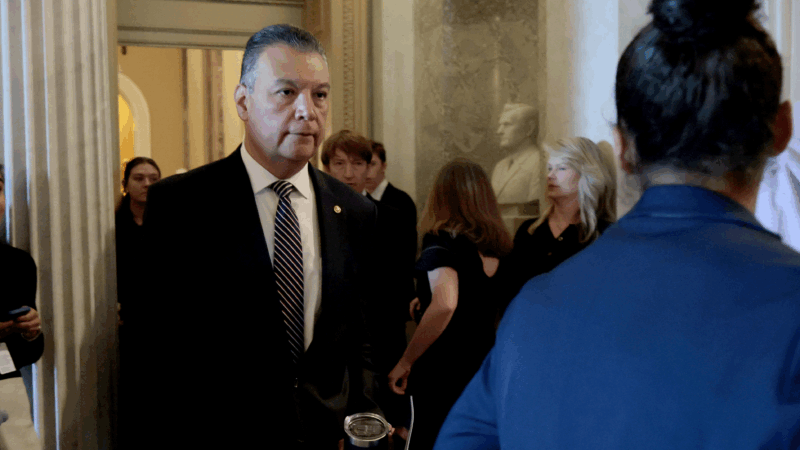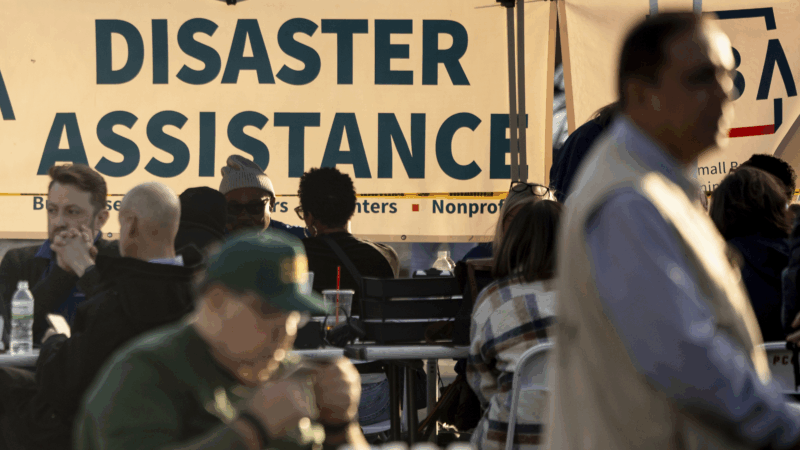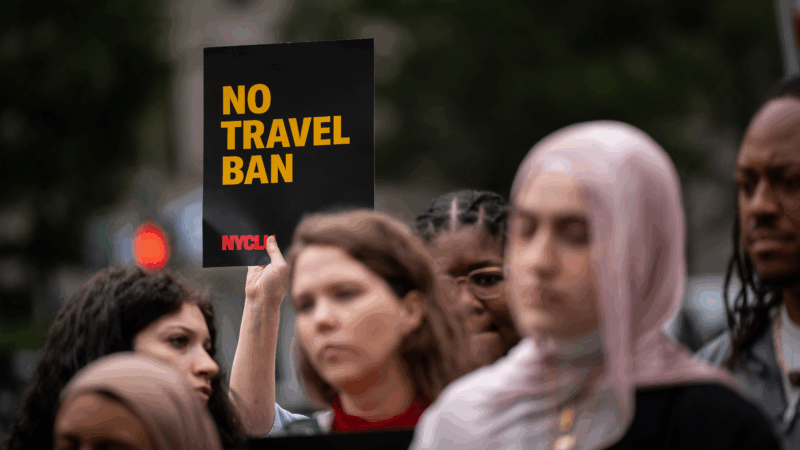A mother asks what’s next after Alabama Supreme Court ruling that frozen embryos are children
Following an Alabama Supreme Court ruling that found frozen embryos are children under state law, the University of Alabama at Birmingham Health System said it will pause in vitro fertilization treatments. At least two other facilities have done the same. The decision leaves many patients unable to access their embryos and wondering if they will be able to continue their IVF treatment.
WBHM’s Richard Banks spoke with one of those patients, Dr. Aubrey Coleman, who’s also a pediatrician and a mom. Coleman began by explaining how she began her treatments at UAB.
This interview was edited for time and clarity.
I started the IVF process in the summer of 2021 and was able to transfer my first embryo in December of 2021, and then I had my daughter in the summer of 2022. We still have six embryos frozen at UAB, and we were kind of gearing up to do another transfer, or start the process of going to do another transfer, when all this happened.
Do you feel like your embryos are being held hostage?
I know that this probably sounds hyperbolic, but I was like, “Okay, well, if they don’t let me transfer them and if they are my children … could people get in trouble for keeping my embryos from me?” And then on the flip side, I was like, “Okay, well, if they’re technically children, then I moved out of state … then somebody could come at me with child abandonment or some crazy thing like that.” And so I just kind of spiraled. But I would hope it’s not going to come to that. But who knows, now.
As a mother or in technical terms, an owner of frozen embryos. How do you feel? How do you feel as a doctor?
For me, this is a huge violation. And it’s kind of insulting to say that hundreds of cells that are sitting in the lab … that have have no chance of surviving outside of a uterus … It’s really a slap in the face to me, medically, and as a mom, to say that those embryos are the same as my child.
Do you feel like this is potentially the start of something that could go national, that could affect other states, like it did Alabama?
I and other people in the medical community, we all said when Roe versus Wade was overturned, “Okay, well, next they’re going to come for this.” And the people who had such black and white views about Roe versus Wade in abortion were, like, that’s insane. No, that will never happen. And now, less than two years later, here we are. And so I think it’s not going to be surprising at all, when the states that have full abortion bans adopt restrictions like this. And I think the confusion is, and where all these clinics, understandably, are being extra cautious, is there is no legislation saying that fertility treatments are protected.
As a doctor, someone who works in health care. How do you feel that this move by the Alabama Supreme Court will affect the state?
This is just going to continue to drive more OB-GYNs out of the state, and it’s already a huge crisis. I used to be a pediatrician in Eufaula, Alabama, and my patients there — the moms — they would have to travel 60 miles to the nearest hospital to deliver. And laws like this — or not that it’s a law — but restrictions like this, are just going to continue to keep the good talent and medicine out of states like Alabama.
Alex Padilla recounts his removal from DHS news conference in emotional Senate speech
The California Democrat returned to the Senate floor Tuesday to warn that the Trump administrations response to immigration protests in Los Angeles should "shock the conscience of our country."
Alfred Brendel, the cerebral pianist with a dry wit, dies at 94
Routinely called a "musician's musician," the pianist had an atypical career that even he called mysterious. He spent it returning to a handful of favorite composers, with acclaimed results.
Sabrina Carpenter joins the ‘song of the summer’ race, just in time
"Manchild," the first single from Sabrina Carpenter's forthcoming album Man's Best Friend, enters this week's Hot 100 singles chart at No. 1, making a late-breaking bid for "song of the summer" status in the process.
Kraft Heinz to remove artificial dyes from all products, like Jell-O and Kool-Aid
By 2027, Kraft Heinz says all artificial food dyes will be replaced with natural colors. The move comes two months after federal officials called on food companies to stop using synthetic dyes.
Leader of top FEMA disaster coordination office resigns, as Trump moves to eliminate agency
Jeremy Greenberg was in charge of coordinating federal help after hurricanes, wildfires, earthquakes and other emergencies. He has resigned from leading FEMA's National Response Coordination Center.
How Trump’s travel ban could disrupt the way knowledge about health is shared
Global health specialists talk about the consequences of the full or partial ban on travel to the U.S. from 19 countries.









